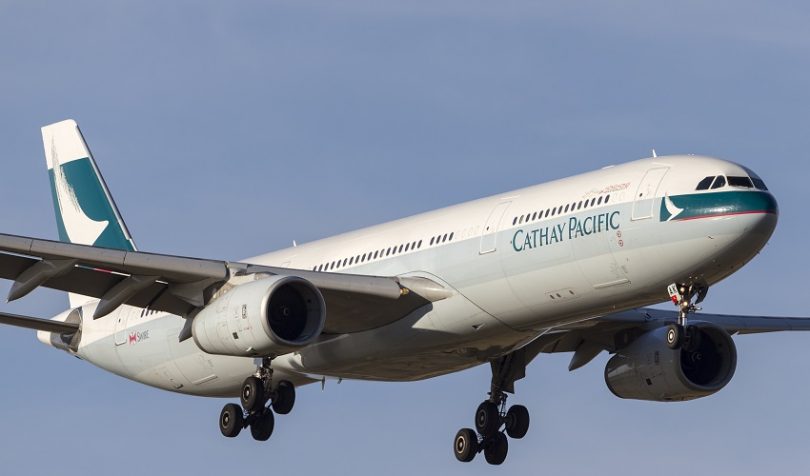Yesterday, airline Cathay Pacific announced that it will use blockchain technology to manage freight containers. The company hopes to implement a system which tracks them in real-time and stores transactions, increasing efficiency and replacing conventional paper-based documents.
The Honk Kong firm will be the first airline to implement a blockchain for cargo. Yesterday’s announcement comes after last year’s successful pilot, which tested out tracking air-shipped freight on a mobile app.
Cathay Pacific will manage its ULDs (unit load devices for containing air cargo) by storing movements and transactions on a blockchain. The firm provides ULDs for general cargo, passenger luggage on commercial planes, transporting cars, and even refrigerated containers for perishables.
As these containers regularly fly around the world, they are challenging to keep track of. This is partly because the freight industry is chiefly paper-based. So, the firm plans to implement a blockchain solution, allowing for verifiable location and stock data.
“Using blockchain to establish a trustworthy ULD database across the network will not only assist with ULD management, but also improve the service quality and experience for our customers,” stated Calvin Hui, Cathay Pacific’s e-cargo and digital enablement manager.
“The most obvious benefit we expect to see is having sufficient ULD stocks for our customers during peak cargo periods, because we will know where exactly to find our ULDs,” he continued.
The airline claims that they will eventually eliminate paper receipts for ULDs with this blockchain project. It will first be rolled out in Honk Kong and some areas of the US, with plans for expanding to all of Cathay Pacific’s locations.
Though the company is the first air cargo firm to use a logistics blockchain, the shipping industry has plenty of projects. Perhaps the largest is IBM/Maersk’s TradeLens platform which, as of last month, represents over half of the world’s container capacity. Its biggest competitor is the Global Shipping Business Network which includes Chinese freight giant COSCO, also aiming to transform the industry digitally.
Cathay Pacific currently has a blockchain loyalty program for frequent flyers. In aviation, this week Russian airline S7 revealed that it had handled $1 million through its blockchain flight payment platform. The Airlines Reporting Corp (ARC) is also working on blockchain projects, with startup Blockskye for flight payments and with United Airlines for ticket sales tracking.






